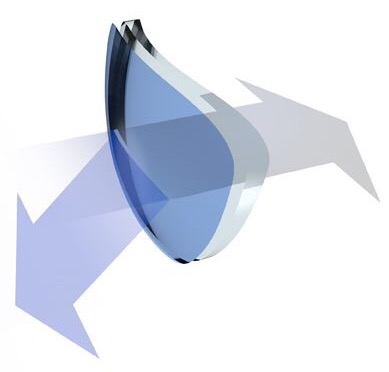Conveniently following on from January’s Dry Eye “lecture” (sorry about that!), and having been asked about this particular topic on more than one occasion following the SKE “Movember” movement, it seemed like the perfect time to reiterate a few points I’ve made about computers and your eyes. Well, computers; phones; tablets; TVs; handheld gaming devices; the list is positively endless…
Basically, anybody spending a significant period of time (two or more hours) using any form of digital device, be it for work or play, is putting an enormous strain on their eyes.What most people don’t realise is that when looking at these screens, our eyes become somewhat “fixated”...

This not only effects our blink rate and the quality of the tear film, which can cause Dry Eye (as discussed in last months blog), but can also lead to Computer Vision Syndrome (CVS), symptoms of which include eye strain and/or headaches, light sensitivity and double vision.
Remember the magical 20:20:20 rule – every 20 minutes, look away from your screen to a distance of approximately 20 feet for 20 seconds!
Perhaps most importantly, make sure you have your eyes tested regularly (at least every two years) and if you are advised to wear glasses for VDU use, etc - WEAR THEM! If you do, you may benefit from an “anti-reflective” coating. This reduces the amount of glare and reflection from such media (and overhead “office” type lighting) in order to improve acuity and contrast. (They are also useful for those people bothered by car headlights when driving at night!).
A hot topic in optics at the moment is “blue light” which is emitted from the likes of VDU screens, tablets, smartphones etc, over-exposure to which has been demonstrated to be a major factor in digital eyestrain, eye fatigue and even sleeplessness. 'Blue controlling' coatings work to selectively absorb/neutralise this harmful blue light, keeping it from entering the eye through the cornea and reaching the retina at back.

Image /via stufkenoptiek.nl
Slightly off at a tangent, but I recently read an interesting article about the role of light in promoting wakefulness, find it here, but the upshot of it is that even small electronic devices emit sufficient light to miscue the brain and promote wakefulness, disrupting the natural pattern of the sleep-wake cycle. The general advice would seem to be remove any and every light emitting device from your bedroom, which seems hugely impractical, and I’m not saying that there’s a link between the blue control coatings and a better night’s sleep, but for any insomniacs’ out there, it can’t hurt to try, right?
As with everything, there are downsides. Coated lenses in general are notoriously difficult to keep clean, and pragmatically are more beneficial to short-sighted, as opposed to long-sighted people.
I actually have a pair of these coated lenses, and I do think they work. They can be applied to a person’s everyday spectacles, but I’m still not sure I would recommend it for this as, solely in my opinion, they seem to change the colour of things slightly making everything look a little sepia, which I personally don’t like. But they are certainly more restful on my eyes – when I’m using my computer, phone or tablet (or watching the TV late at night with the lights out – naughty, naughty!).
.jpeg)
(Please excuse the "selfie"!)
As always, if you have any questions about the topics discussed in this, or any of my other blog posts, please don’t hesitate to contact me! It would be great to hear from you!

